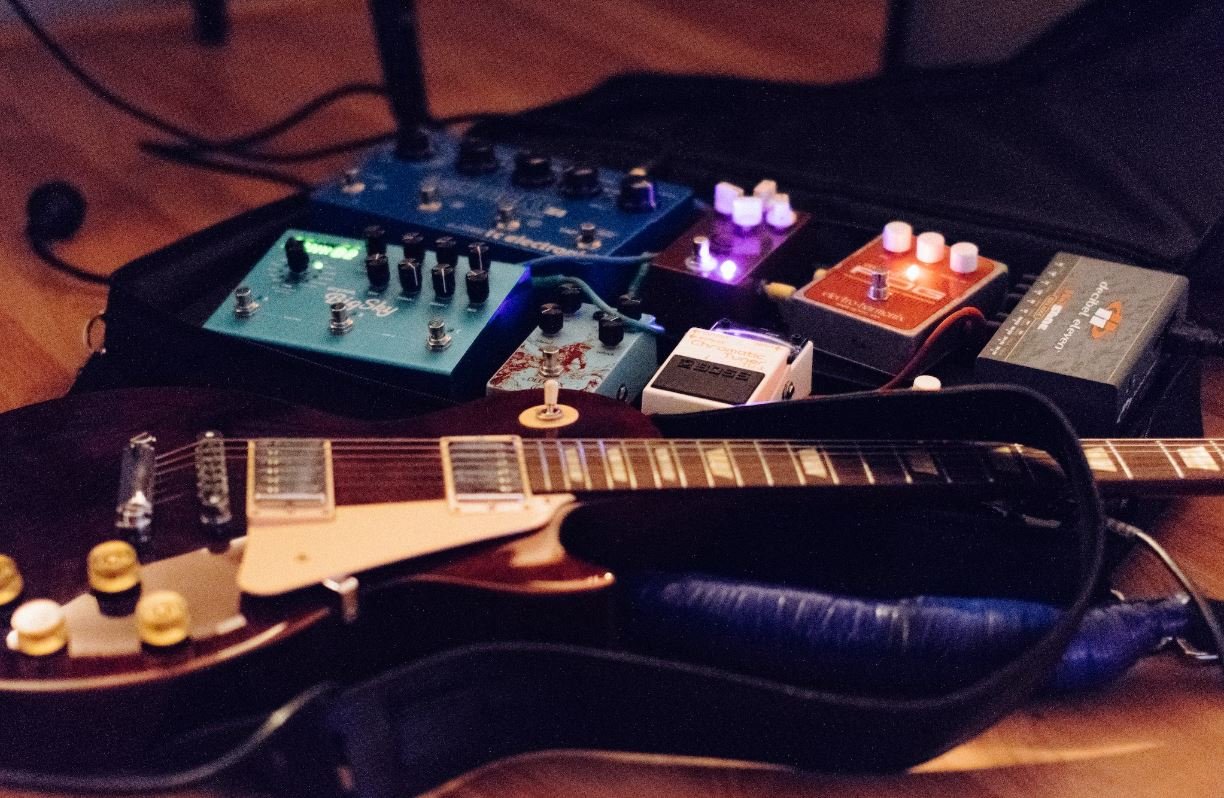Music Production
Music production is the process of creating and recording music. It involves various stages, including writing and arranging music, recording and editing audio, and mixing and mastering tracks to achieve the desired sound.
Key Takeaways
- Music production involves writing, recording, editing, and mixing music.
- The process includes various stages, from composition to mastering.
- It requires technical skills, knowledge of music theory, and creativity.
Composition
In music production, composition is the process of creating a musical piece. It involves writing melodies, harmonies, and rhythms that form the foundation of the song. Composers use instruments, music theory, and their own creativity to come up with unique and compelling musical ideas. *Music composition is akin to painting a sonic canvas, where every note and chord holds significance.*
Recording and Editing
Recording is the process of capturing sound using microphones and other audio equipment. It allows musicians to preserve their performances and capture different audio tracks for mixing. Once the recordings are done, editing involves refining the audio by trimming, arranging, and manipulating the recorded tracks to achieve the desired result. *Editing can transform raw audio into a polished and cohesive piece.*
Mixing and Mastering
After recording and editing, the next step is mixing, where multiple audio tracks are combined, balanced, and processed. Mixing involves adjusting the volume, panning, and applying effects to create a cohesive sound. This process brings all the individual elements together, ensuring clarity and a pleasing sonic experience. Once the mix is finalized, mastering is done to optimize the overall sound quality and prepare the final tracks for distribution. *Mastering adds the final touch, making the music sound polished and ready for the audience to enjoy.*
Table 1: Types of Microphones
| Type | Applications |
|---|---|
| Condenser | Vocal recordings, acoustic instruments |
| Dynamic | Live performances, drums, electric guitars |
| Ribbon | Vintage sound reproduction, soft instruments |
Table 2: Effects Processors
| Type | Usage |
|---|---|
| Equalizer | Adjusts frequency balance in the mix |
| Compressor | Controls dynamic range and evens out volume |
| Reverb | Adds sense of space and depth |
Table 3: Digital Audio Workstations (DAWs)
| Software | Main Features |
|---|---|
| Ableton Live | Real-time recording, live performance capabilities |
| Logic Pro X | MIDI sequencing, extensive sound library |
| Pro Tools | Professional mixing, industry-standard software |
Equipment and Skills
Music production requires a combination of technical skills, knowledge of music theory, and creativity. Musicians and producers often use a variety of equipment and software, including microphones, DACs, audio interfaces, digital audio workstations (DAWs), and more. It is essential to have a good understanding of different audio processing techniques and the ability to operate various tools effectively. *Having a versatile skill set enables producers to experiment and push creative boundaries.*
Industry Trends
The music production industry is constantly evolving, driven by advancements in technology and changing consumer preferences. Some notable trends include:
- Increased reliance on digital and software-based production tools.
- Emphasis on streaming platforms and online distribution.
- Growing importance of collaborations and remote work.
Conclusion
Music production is a complex and artistic process that involves composing, recording, editing, and mixing music to create engaging soundtracks. It requires a combination of technical skills, creativity, and an understanding of the latest industry trends. Whether you are a musician or a producer, diving into music production opens up a world of possibilities for sonic exploration and creativity.

Common Misconceptions
1. Music Production is Only for Musicians
Many people believe that music production is exclusively for musicians or individuals with musical talent. However, this is a common misconception. Music production involves a wide range of skills and tasks beyond playing instruments or singing. It includes tasks such as audio recording, editing, mixing, and mastering. Musicians certainly benefit from music production knowledge, but anyone with an interest in sound engineering and production can pursue a career or hobby in this field.
- Music production involves technical skills beyond musicianship
- You don’t need to be a musician to produce music
- Understanding music production can enhance the overall music listening experience
2. Music Production Equipment is Expensive
Another common misconception about music production is that it requires expensive equipment and software. While high-end equipment can provide professional-level quality, it is not necessary for beginners or those on a budget. There are plenty of affordable options available, including free software and budget-friendly hardware, that can provide excellent results. It’s more important to focus on building your skills and knowledge than on investing in expensive equipment.
- You can start music production on a budget
- There are free software options available
- Your skills matter more than the cost of your equipment
3. Music Production is a Quick and Easy Process
Some people have the misconception that music production is a quick and easy process. They may think that all it takes is pushing a few buttons and applying some effects, but the reality is far more complex. Music production involves careful planning, creative decision-making, and technical expertise. It takes time to record, edit, mix, and master music to achieve the desired outcome. It’s important to be patient, dedicated, and willing to put in the effort to produce high-quality music.
- Music production requires planning and creative thinking
- It takes time to achieve desired results
- Patience and dedication are essential in music production
4. Music Production is Only about Pop Music
Many people associate music production solely with pop music. While pop music production is certainly a prominent aspect of the field, music production encompasses a wide range of genres and styles. Music producers work with artists from various genres, including rock, hip-hop, electronic, classical, and more. Each genre requires a unique approach to production, and music producers adapt their skills to suit the specific needs and preferences of the artist and genre.
- Music production is not limited to pop music
- Music producers work with artists from different genres
- Different genres require different production approaches
5. Music Production is for Younger Generations Only
There is a common misconception that music production is primarily for younger generations who are more technologically inclined. However, people of all ages can learn and excel in music production. Many successful music producers have started their careers later in life and achieved great success. Age does not limit creativity, passion, or the ability to acquire technical skills required for music production. As long as one is willing to learn and dedicated to their craft, age becomes irrelevant in the world of music production.
- Music production is not limited to younger generations
- Anyone can learn and excel in music production, regardless of age
- Creativity and passion matter more than age in music production

The Rise of Music Production
Over the years, music production has revolutionized the way music is created and consumed. In this article, we explore various aspects of music production and its impact on the industry. Below are ten fascinating tables that shed light on different aspects of music production.
The Most Streamed Songs of All Time
The following table showcases the top five most streamed songs of all time:
| Song | Artist | Streams (in billions) |
|---|---|---|
| “Shape of You” | Ed Sheeran | 2.8 |
| “Despacito” | Luis Fonsi ft. Daddy Yankee | 2.7 |
| “Blinding Lights” | The Weeknd | 2.4 |
| “Rockstar” | Post Malone ft. 21 Savage | 2.2 |
| “Uptown Funk” | Mark Ronson ft. Bruno Mars | 2.1 |
The Evolution of Music Production Software
This table presents the evolution of music production software throughout the years:
| Decade | Notable Software |
|---|---|
| 1980s | Prophet-5, Fairlight CMI |
| 1990s | Sound Forge, Cubase VST |
| 2000s | FL Studio, Ableton Live |
| 2010s | Logic Pro X, Pro Tools |
| 2020s | Bitwig Studio, Studio One |
The Most Expensive Albums Ever Produced
In this table, we take a look at the most expensive albums ever produced:
| Album | Artist | Production Cost (in millions of USD) |
|---|---|---|
| Thriller | Michael Jackson | 1.2 |
| Music | Madonna | 1.0 |
| The Wall | Pink Floyd | 0.9 |
| Let’s Talk About Love | Celine Dion | 0.8 |
| Honky Château | Elton John | 0.7 |
The Impact of Auto-Tune
This table depicts the impact of auto-tune usage in popular songs:
| Song | Artist | Auto-Tune Intensity (scale from 1-10) |
|---|---|---|
| “Believe” | Cher | 10 |
| “Heartless” | Kanye West | 9 |
| “SexyBack” | Justin Timberlake | 6 |
| “Stronger” | Kelly Clarkson | 4 |
| “Rolling in the Deep” | Adele | 1 |
Popularity of Virtual Instruments
The following table showcases the most popular types of virtual instruments used by music producers:
| Category | Percentage of Producers Using |
|---|---|
| Synthesizers | 71% |
| Drum Machines | 64% |
| Sample Libraries | 58% |
| Pianos/Keyboards | 56% |
| Orchestral Instruments | 45% |
Music Production Employment Statistics
This table illustrates employment statistics in the music production industry:
| Job Title | Number of Employees (in thousands) |
|---|---|
| Music Producer | 21 |
| Sound Engineer | 17 |
| Studio Technician | 12 |
| Mixing Engineer | 9 |
| Mastering Engineer | 6 |
The Vinyl Resurgence
Table showcasing the increase in vinyl record sales:
| Year | Vinyl Record Sales (in millions) |
|---|---|
| 2010 | 2.8 |
| 2013 | 6.1 |
| 2016 | 13.1 |
| 2019 | 18.8 |
| 2022 | 25.3 |
The Gender Gap in Music Production
This table looks at the gender distribution in music production jobs:
| Job Title | Percentage of Women |
|---|---|
| Music Producer | 21% |
| Sound Engineer | 15% |
| Studio Technician | 32% |
| Mixing Engineer | 19% |
| Mastering Engineer | 9% |
The Impact of Music Production on Revenue
Assessing the revenue generated through music production:
| Year | Total Industry Revenue (in billions of USD) |
|---|---|
| 2010 | 47 |
| 2013 | 61 |
| 2016 | 72 |
| 2019 | 87 |
| 2022 | 102 |
Music production has become an integral part of the modern music industry, enabling artists to create and shape their sound in innovative ways. It has witnessed an evolution in tools and techniques, from the early days of hardware instruments to the rise of software-based production suites. The popularity of streaming services coupled with advancements in technology has brought about significant changes in how music is consumed globally. While the industry continues to strive for inclusivity and bridging gender gaps, employment opportunities in various production roles persist. As the revenue generated by the industry continues to soar, music production remains a driving force behind the creation and success of some of the most iconic songs and albums of our time.
Frequently Asked Questions
What software do I need to start music production?
To start music production, you’ll need a digital audio workstation (DAW). Popular DAWs include Ableton Live, FL Studio, Logic Pro, Pro Tools, and Cubase.
Do I need any specific hardware for music production?
While a computer with sufficient processing power and RAM is essential, you can enhance your music production setup with additional hardware such as MIDI controllers, audio interfaces, synthesizers, and studio monitors for better control and sound quality.
How important is music theory in music production?
Music theory helps you understand the fundamental principles of melody, harmony, and rhythm, allowing you to create more cohesive and enjoyable compositions. Although not strictly necessary, knowledge of music theory can greatly enhance your music production skills.
What are the different stages of the music production process?
The music production process typically involves pre-production (planning and conceptualizing), recording, arranging, editing, mixing, and mastering.
What is the purpose of mixing in music production?
Mixing involves adjusting the levels, panning, equalization, and effects of individual tracks to create a balanced and cohesive sound. It ensures that each element of the song can be heard clearly and that they work together harmoniously.
What is mastering in music production?
Mastering is the final step in the music production process. It involves optimizing the overall sound of the mix by adjusting levels, adding equalization, compression, and applying various mastering techniques to achieve a polished and commercially competitive final output.
How can I improve the quality of my recordings?
To improve the quality of your recordings, ensure you have a good recording environment, use high-quality microphones, properly position the microphones, apply proper gain staging, and consider acoustic treatment to minimize unwanted reflections and background noise.
What are plugins in music production?
Plugins are software-based audio effects and instruments that you can use within your DAW. They allow you to add various effects such as reverb, delay, compression, and simulate different instruments to enhance your music production.
What is the best way to learn music production?
The best way to learn music production is through a combination of hands-on practice, studying tutorials, attending workshops or online courses, and collaborating with other producers. Experimentation and actively listening to various styles of music also play a significant role in improving your skills.
Are there any legal issues I should be aware of when using samples or copyrighted material in my music production?
Yes, using samples or copyrighted material without permission can lead to legal issues. It’s essential to properly license any samples or seek permission from the original creators before including them in your music production to avoid potential legal consequences.




